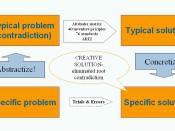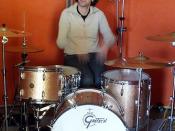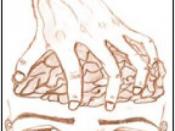According to the triarchic theory, intelligence results from information processing being applied to experiences for the purposes of adaptation to, shaping of, and selection of environments. In other words, intelligence can be formed like any other expertise. The theory is applied by combining the idea that learners must learn a problem solving cycle and use three kinds of thinking. The problem solving cycle has three steps. First, you identify the problem or problems to be addressed. Second, comes the allocation of resources in order to solve the problem. Third comes the formulation of strategies for solving the problem(s).
The first level of thinking is analytical where components are applied to relatively familiar types of problems. The components being things or functions that we perform on a daily basis. Functions such as analyzing, evaluating, judging, comparing, contrasting, and critiquing describe this level of thinking. Second is creative thinking. This occurs when information processing is applied to relatively novel types of problems.
Third is practical thinking. This is when information processing is applied to everyday problems.
Creative or Experiential Dimension - This aspect of intelligence examines how people approach new and unfamiliar tasks. This is also considered the insightful dimension to a person's intelligence. The experiential dimension can be further divided into two categories: novelty and automatization. Novelty is how a person reacts with the first exposure to a new scenario and automatization is how a person handles repeated tasks, or practice. Practical or contextual dimension is a person's intelligence as it relates to their environment and how they adapt. This is often referred to as "street smarts".
Creativity is the very point of and what sets Sternberg's Triarchic Theory apart from other intelligence theories. It encompasses the creative and practical aspects of one's intellect. Sternberg believes that no intelligence test can...


